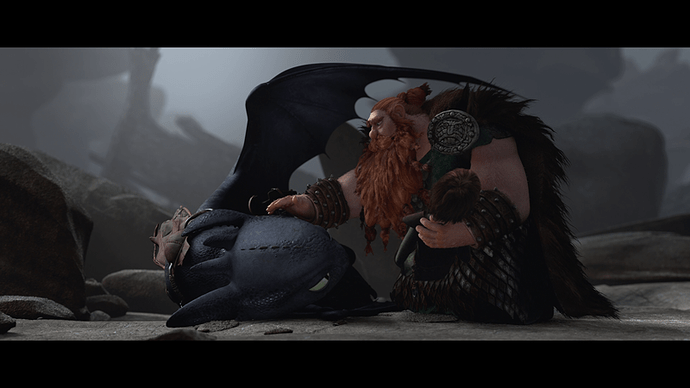First of all, it’s okay not to know how to distinguish between a strong or weak climax. It’s only my opinion, haha. And while I did like those movies, I have to be honest and say that they had some aspects that didn’t go well with me, like their climaxes.
Well, let me think, how would I classify a good climax?
In a nutshell, it would be one that pits the hero against a formidable villain, and emerging a different character afterwards. The villain can be anything from an actual character, to the natural elements, to even an internal struggle. Do note that there are SPOILERS AHEAD (all the following movies have been released on DVD). I’ve bolded the titles ahead of the spoilers, in case anyone doesn’t want to read them.
Finding Nemo, for example, had a fantastic climax, even though there was no “antagonist” per se. This is because Marlin has to face a fear he has, of letting Nemo go (both literally and figuratively). When Nemo had to return alone into the net to save their friend Dory and the tuna, Marlin’s will is put to the test, and this reveals his strength.
Sometimes, it is not the main protagonist who has to face a challenge, but the deuteragonist or even the tritagonist. In Wall-E, the titular robot is already “perfect” in a character-development sense. He is merely the agent of change for every other character, from Eve learning what it means to love another being, to M-O overcoming his neurotism, to Captain McCree experiencing his epiphany that there is a greater world beyond the confines of his vessel.
The villain might be even a concept. In Up, Carl had to learn to move on from his Ellie’s death. This is represented visually by him using the house to fly back and save Kevin and Russell, instead of staying on Paradise Falls. Muntz, who can’t let go of his obsession with capturing Kevin, not only loses the bird, but his life, when he is “taken” by the house that has been holding Carl back from experiencing life. While Muntz is a villain, the real “test” in the movie was Carl letting go of his past and looking forward to the future.
Sometimes, the villain might be a good enough reason alone to say a climax is good, especially if it takes the viewer by surprise. King Candy’s reveal in Wreck-It Ralph is one that comes to mind. Sometimes, it is the climatic action itself, like in Spirit: Stallion of the Cimarron, where Spirit takes a literal leap of faith across a gorge. Or it might be the denouement, like How to Train Your Dragon’s touching post-battle scene where Stoick the Vast grieves over Hiccup’s body.
Madagascar 3 had a lousy climax IMO because there was no real sense of peril for Alex and his gang (for me). DuBois was too easily defeated (although I love the use of Circus Americano as a Chekov’s gun). The Zoosters don’t emerge different characters afterwards - in fact, Vitaly is the one who went through the most change in his quest for redemption.
Cars 2 had an awkward and overlong gag with Lightning chasing Mater and the mistaken interpretation of “bomb”. Again, the baddies were dispatched too easily, and there was never any real doubt that Mater would unmask the true villain Scooby-Doo style.
And Ice Age: Continental Drift had a weak villain with zero motivation to begin with. Why was Captain Gutt so bent on enslaving the Ice Age gang when they had done him no wrong? It only got personal when Manny sunk Gutt’s ship in self-defence, and then it became a simple case of tit-for-tat revenge. The climax was also not really high stakes enough, with Manny comically using his weight (which Gutt has been teasing throughout the entire movie) to defeat the pirate.
The fact that they’re sequels has nothing to do with it.  Some of the best climaxes I’ve seen were in sequels, such as Lord of the Rings: Return of the King, Star Trek Into Darkness and Kung Fu Panda 2, off the top of my head. The fact that they’re the latest instalments in the series means there’s even more reason for a character to perish, especially if you haven’t seen any in the series (cos it’s unlikely a sequel would exist if the hero died in the first movie).
Some of the best climaxes I’ve seen were in sequels, such as Lord of the Rings: Return of the King, Star Trek Into Darkness and Kung Fu Panda 2, off the top of my head. The fact that they’re the latest instalments in the series means there’s even more reason for a character to perish, especially if you haven’t seen any in the series (cos it’s unlikely a sequel would exist if the hero died in the first movie).
Some movies that were mediocre for me had excellent climaxes, like Shrek The Fourth (in which a Chekov’s Gun of Fiona’s rhyme about tying knots is used, and Shrek discovers how much he takes for granted in life) and Toy Story 3 (where the toys faced their mortality and were prepared to die together).
Sorry for the super long ramble LQstudiesPixar, couldn’t resist. 
